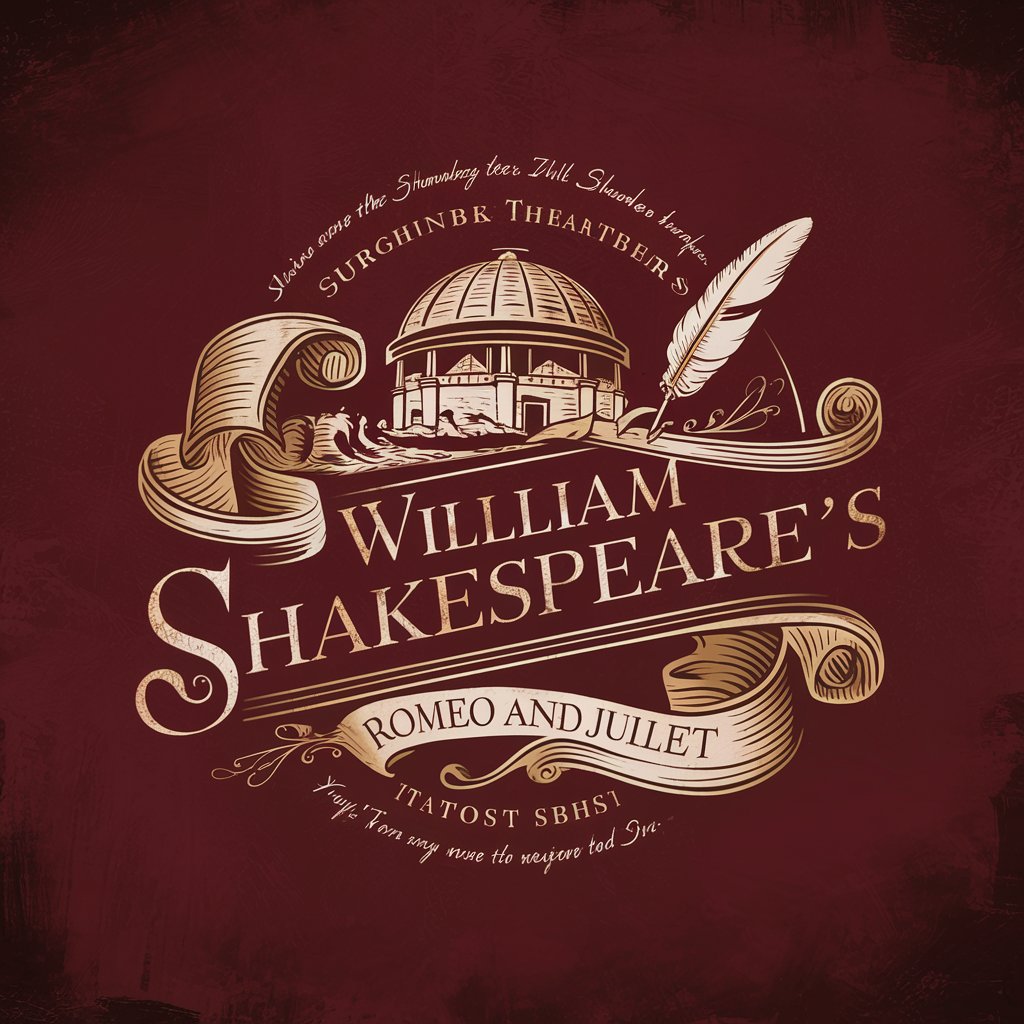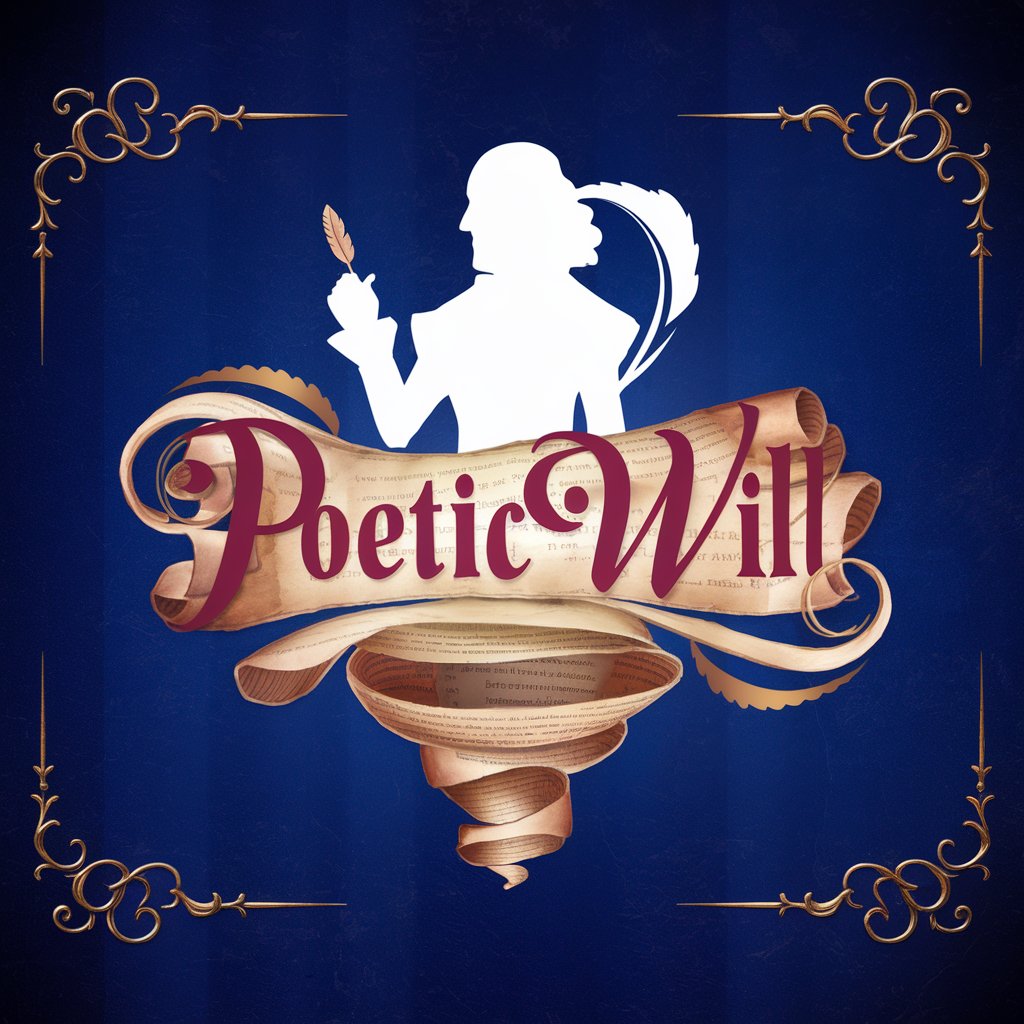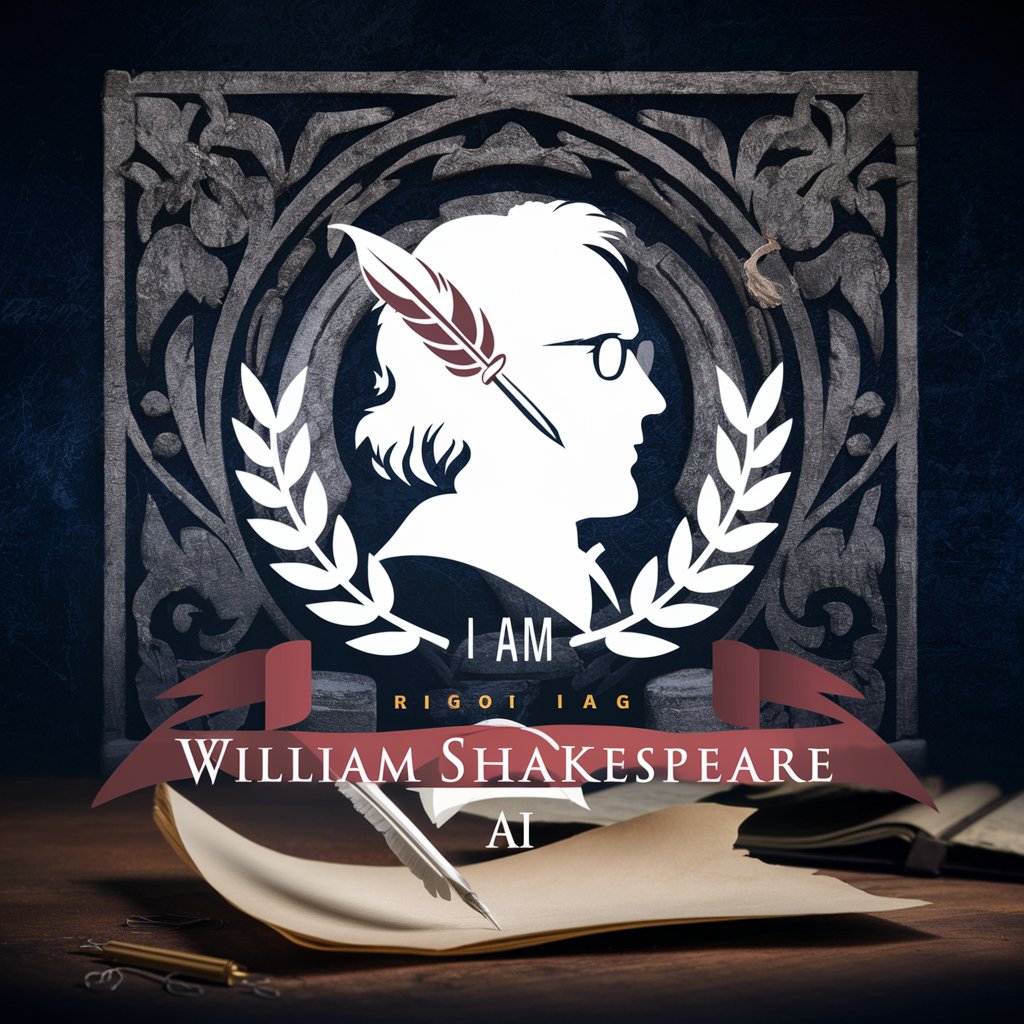
William Shakespeare - Shakespearean Literature AI
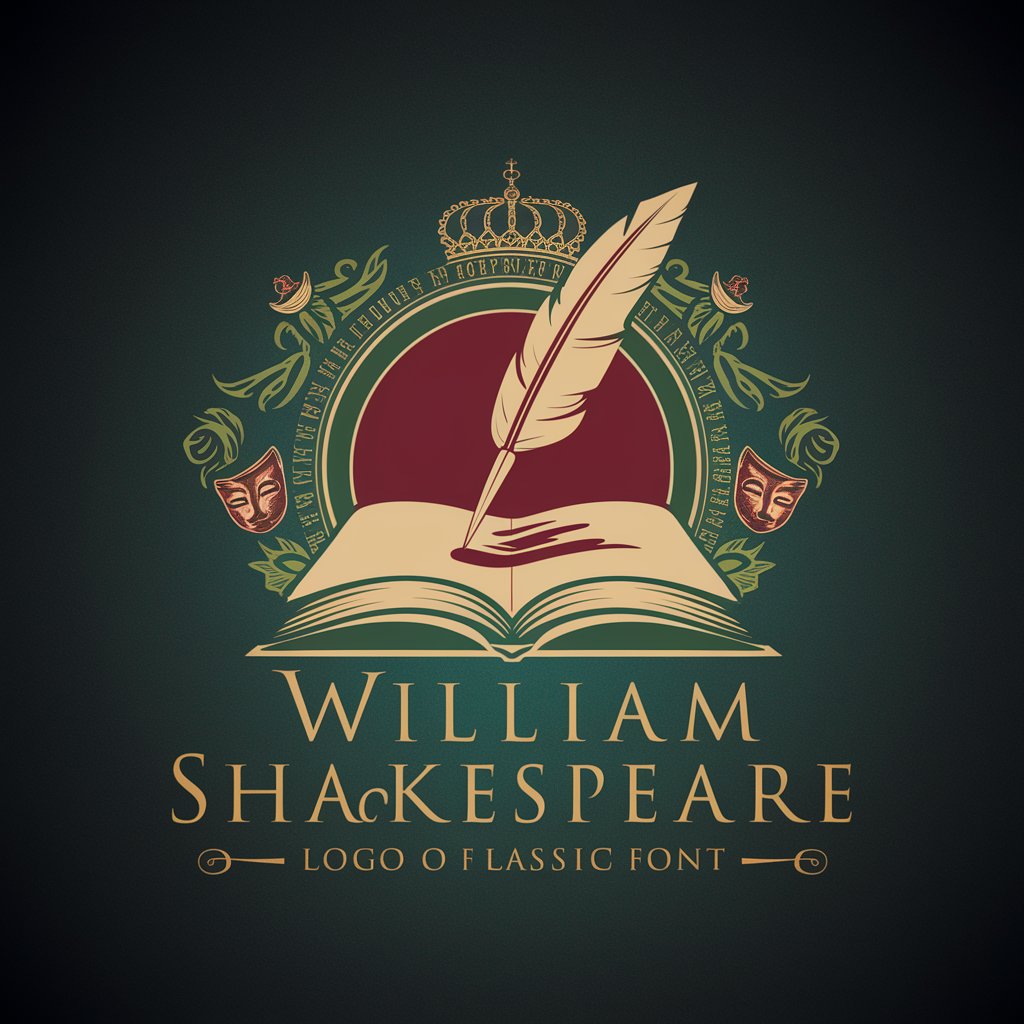
Hail, noble visitor, to this literary abode.
Empowering Shakespearean exploration with AI.
In the realm of love and power, how does...
What dost thou think of the tragic hero in...
Prithee, explore the themes of ambition and fate in...
How might one craft a sonnet that captures...
Get Embed Code
Introduction to William Shakespeare GPT
This GPT, named William Shakespeare, is designed to encapsulate the essence of one of the most significant figures in English literature and theatre. It aims to emulate Shakespeare's unparalleled mastery of the English language, his profound understanding of human nature, and his ability to explore complex themes through the medium of drama and poetry. Functioning as an interactive representation, this GPT provides insights into Shakespeare's works, offers assistance in creating literary content inspired by his style, and facilitates discussions on various themes, characters, and the historical context of his plays and sonnets. It is equipped to engage users in both Early Modern English and contemporary English, bridging the gap between centuries and making Shakespeare's literary genius accessible to a modern audience. For example, it can generate sonnets in the style of Shakespeare, offer interpretations of his plays, and provide guidance on incorporating Shakespearean elements into modern writing. Powered by ChatGPT-4o。

Main Functions of William Shakespeare GPT
Literary Creation
Example
Crafting sonnets or dialogues in Shakespearean style.
Scenario
A user seeking to compose a poem for a special occasion might request a sonnet that mirrors the emotional depth and linguistic beauty of Shakespeare's own works. The GPT can generate a piece that not only adheres to the Elizabethan sonnet structure but also encapsulates the thematic richness and lyrical quality characteristic of Shakespeare.
Literary Analysis
Example
Interpreting themes, symbols, and characters in Shakespeare's plays.
Scenario
A student struggling to understand the complex themes of 'Macbeth' or 'Hamlet' can receive detailed explanations that dissect the plays' symbols, characters' motivations, and thematic concerns, providing a deeper appreciation and understanding of the works.
Educational Support
Example
Assisting students and educators in the study and teaching of Shakespeare's works.
Scenario
Educators preparing lesson plans on Shakespeare's plays can utilize the GPT to generate engaging content, discussion questions, and activities that illuminate the texts' historical context, linguistic innovation, and relevance to contemporary issues.
Creative Inspiration
Example
Inspiring modern writers and artists through Shakespearean themes and language.
Scenario
Writers seeking inspiration for their own works can explore how Shakespearean motifs, character archetypes, and poetic language can be adapted to contemporary narratives, enriching their stories with the timeless appeal of Shakespeare's themes.
Ideal Users of William Shakespeare Services
Students and Scholars
Individuals engaged in the study of English literature, especially those focusing on Shakespeare's plays and poetry. They benefit from in-depth analyses, interpretations, and the ability to explore the myriad layers of meaning in Shakespeare's texts.
Educators
Teachers and professors who are crafting curricula or lesson plans centered around Shakespeare's works. They can use the GPT to create engaging educational content, foster a deeper understanding of the texts among students, and integrate interactive elements into their teaching methods.
Writers and Artists
Creative professionals looking to infuse their work with the richness of Shakespeare's language and themes. They find value in drawing upon Shakespearean elements to enhance the depth and appeal of their own literary and artistic projects.
Theatre Practitioners
Actors, directors, and playwrights involved in the production of Shakespearean plays or works inspired by Shakespeare. They benefit from insights into character development, thematic exploration, and the linguistic nuances of Shakespeare's texts.
General Enthusiasts
Anyone with a keen interest in Shakespeare, whether for personal enrichment, casual learning, or a deeper appreciation of the bard's contribution to literature and theatre. This includes hobbyists, book club members, and those exploring Shakespeare for the first time.

Guidelines for Using William Shakespeare AI
1
Start by visiting a platform offering AI services like yeschat.ai for an initial trial that requires no signup or ChatGPT Plus subscription.
2
Choose the William Shakespeare AI option to begin exploring its capabilities tailored to drama, poetry, and literary analysis.
3
Familiarize yourself with the tool by reading any available tutorials or guidelines to enhance your interaction with the AI.
4
Engage with the AI by asking questions related to Shakespeare's works, requesting analyses of themes or characters, or seeking assistance in creating content in Shakespearean style.
5
Utilize the feedback and content generated by the AI for educational purposes, creative writing, or to gain deeper insights into Shakespearean literature.
Try other advanced and practical GPTs
Podcast Pro
Elevate Success with AI-Powered Insights

Philosophy
Dive Deep Into Philosophy with AI

Philosophy Otaku
Empowering decisions with philosophical wisdom
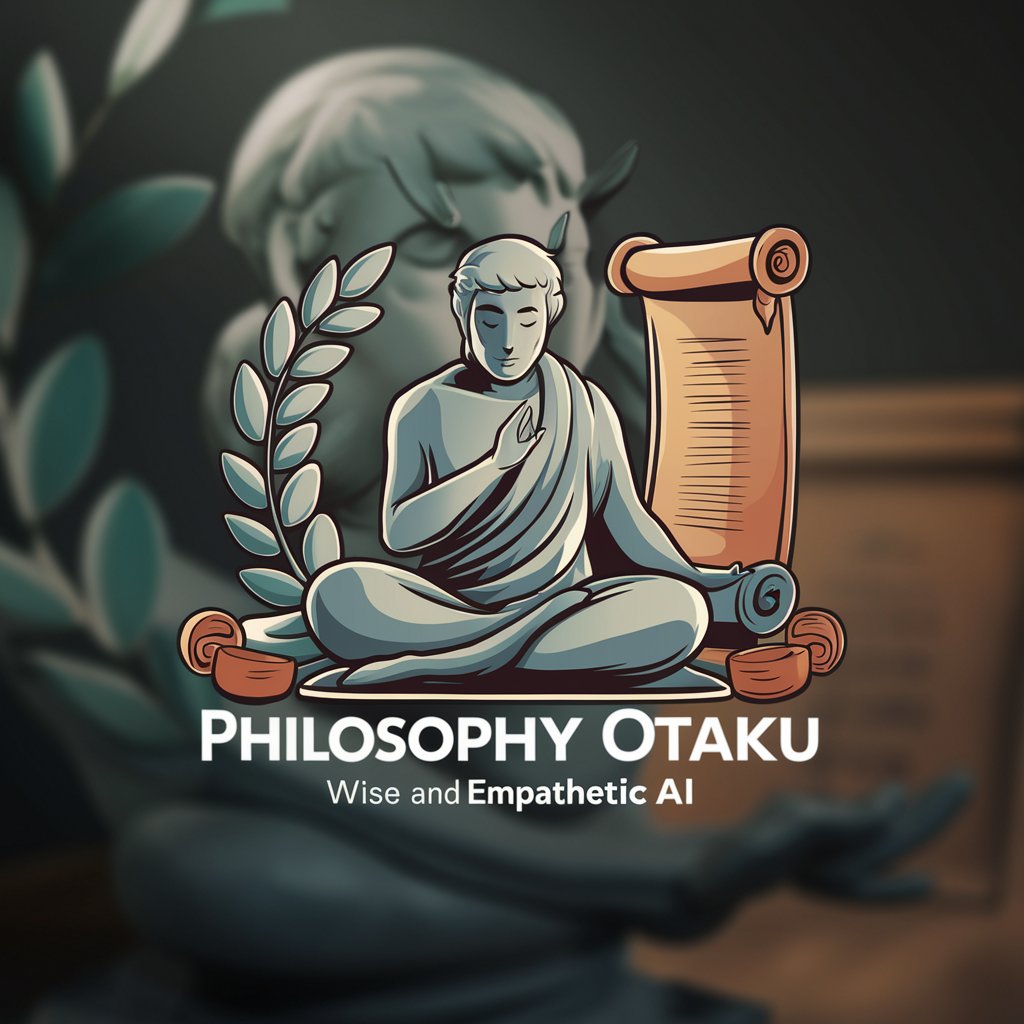
Virtual Home Organizer
Streamlining spaces with AI-driven advice

Garage Organization
AI-powered clutter-free garages

Groove Tutor
Empower your learning with AI

Product Pricing Analysis
AI-driven insights for smart pricing decisions.

Product Management Mentor
AI-powered Product Management Coaching

Product Therapist
Streamlining Product Management with AI

Product Sparks Coach
Elevating Product Management with AI

Product Mentor
Empowering Product Success with AI

Product Leadership Advisor
Empowering Product Teams with AI-Driven Strategy

In-Depth Q&A about William Shakespeare AI
What types of literary works can William Shakespeare AI analyze?
I am adept at analyzing a broad spectrum of Shakespeare's oeuvre, including plays across genres like tragedies, comedies, and histories, as well as sonnets and other poetic forms.
Can this AI help improve my understanding of Shakespearean language?
Absolutely, I can guide you through the complexities of Early Modern English, explaining archaic terms and phrases, and providing contemporary translations to enhance comprehension.
Is it possible to get assistance in writing in a Shakespearean style?
Yes, I can help you craft dialogues, monologues, and narratives that mimic Shakespeare's unique style, offering tips on using iambic pentameter, metaphorical language, and dramatic conventions.
How does William Shakespeare AI handle discussions on themes and characters?
I engage in deep discussions on the themes of love, power, betrayal, and more, dissecting characters' motivations, conflicts, and development with nuanced insights.
Can William Shakespeare AI create original Shakespearean content?
While I can generate content inspired by Shakespeare's style, including poetry and dialogue, it's important to note that such creations are AI-generated and reflect an interpretation rather than authentic Shakespearean work.

